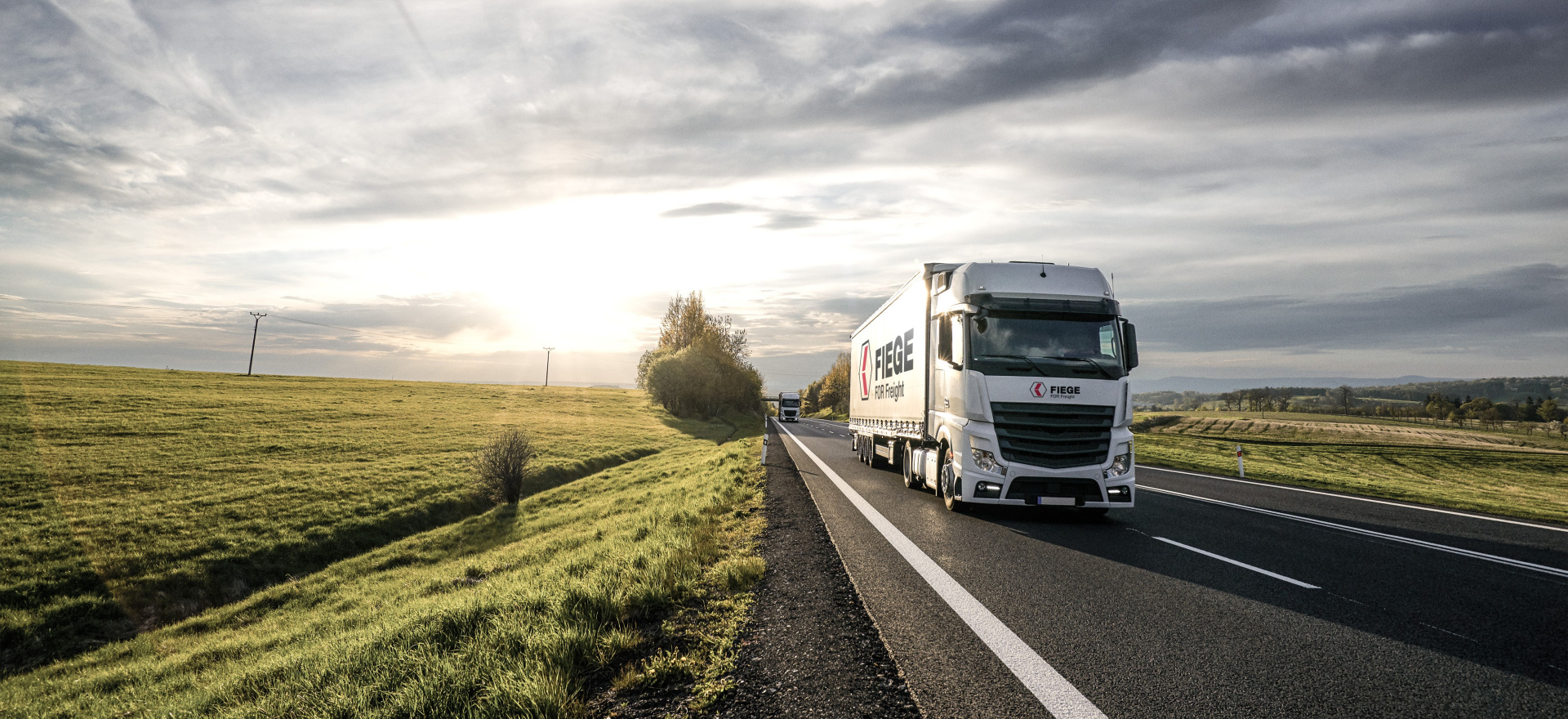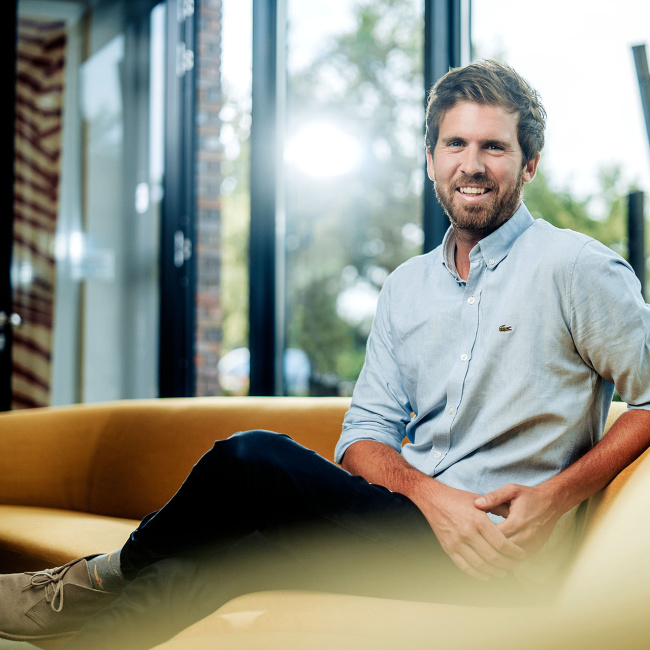FIEGE is setting standards in retail distribution with FOR Freight

In April 2020, FIEGE incorporated a new business: FOR Freight. Fast forward two and a half years, and it has become a success story – despite Covid. Its performance speaks for itself.
The hardest part is getting started, so they say. But Stephan Wittenbrink and Nils Kremer did not expect things to be that hard. Because, when the theory finally became reality, Covid hit. “Of course, when we first came up with the idea, we expected things to turn out very differently”, Wittenbrink says, “but we still went ahead. Today we know that we did everything right.”
Today, that is more than two and a half years after the formation of FOR Freight GmbH & Co. KG on 1 April 2020. And doing everything right means that the stand-alone spin-off from the Fashion & Lifestyle business unit of the FIEGE Group has flourished to create its own story of success and growth. In the meantime, Wittenbrink, Managing Director of the Fashion & Lifestyle business unit calmly looks back at when they launched, and explains: “We started with one client right in the middle of lockdown and continuously optimised our processes, to become more and more efficient. In the meantime, we work for nine principal accounts as well as a number of smaller partners and have one of the largest retail networks with a focus on fashion in of Germany. For 2023, we expect our turnover to have doubled compared to 2020.”
Germany-wide freight forwarding to the point of sale
Efficient and optimised processes, according to Wittenbrink, mainly refers to the Germany-wide transportation of freight to points of sale that are located especially in the inner cities. Nils Kremer, Managing Director FOR Freight says: “What we are doing is not really something new. It falls more into the category of traditional freight forwarding. What is new, however, is how we think the business.” The primary focus here – even if FOR Freight naturally does not exclude anything per se – is very clearly always on the fashion and lifestyle segment, Kremer explains. “Inner city delivery is a very special ground. And we are more flexible and agile than others when it comes to navigating these grounds.”
The magic word for the success of FOR Freight is customisation. “That is the biggest benefit we offer our clients”, Kremer says. “We supply the stores precisely when the customer needs this because we can customise both our service and delivery times. In this way, we do not squeeze our clients into a rigid system and can answer specifically to their respective needs.” The basis for this is the modular network of FOR Freight composed of bigger and smaller partners. “This is how we create reliability and flexibility while the quality remains steady and high.” This applies to any amount of volume. “The volume of the consignment is secondary really; at the forefront is the concept”, says Kremer. “We offer our service for everything from small volumes to full-truck loads – for both flat-lying and hanging garments as well as the more traditional product ranges found in inner cities.”
Supply of Germany’s who’s who in the pedestrian zones
It is a concept that has proven to be very popular. Step by step, FOR Freight has been conquering B2B deliveries to shops and department stores in Germany’s city centres. Zalando, New Yorker or SportScheck – the list of clients reads like a who’s who of pedestrian zones. Wittenbrink explains: “We are very pleased to have renowned clients give us their trust and that our business model was so convincing. That is a wonderful acknowledgement of our work, especially also because it greatly motivates us to advance FOR Freight even further.”
These plans have been on the mind of Wittenbrink and Kremer for a long time. On the one hand, they are aiming to move more freight by rail in the future wherever possible. On the other, they are looking to support clients on an even more integrated scale in the future. “I am sure”, says Wittenbrink, “that because of our focus on customisation, we are not only the perfect partner for delivery to the point of sale, but also for upstream procurement transport.” More specifically, Wittenbrink is thinking of truck and rail transport from the regions of production and procurement that are especially relevant for the fashion and lifestyle industry, for example, Eastern Europe, Northern Africa, or the Iberian Peninsula. “And if we take things one step further”, he says, “we may already offer on-site services within textile finishing or quality control in cooperation with other FIEGE units in many countries.” The end of this success story is currently not in sight.



